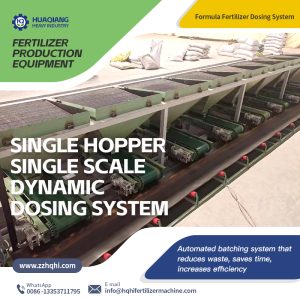When the compost raw materials are fermented, organic fertilizer manufacturers also need to post-process them, which mainly includes the following steps.
1. Screening and granulation:
After fermentation is completed, the finished compost is screened to remove impurities and organic matter that is difficult to decompose.
The screened materials are processed separately according to the moisture content. The materials with high moisture content need to be dried, and then various additives (such as nutrients such as nitrogen, phosphorus and potassium) are added in proportion and mixed.
The materials are granulated by a granulator to make finished granular fertilizer.

2. Inspection and packaging:
The organic fertilizer manufacturer conducts quality inspection on the finished fertilizer, including indicators such as appearance, odor, and nutrient content.
The finished fertilizer that passes the inspection is quantitatively packaged and then put into storage for sale.
3. Precautions:
During the entire production process, key parameters such as the moisture content, C/N ratio, and fermentation temperature of the raw materials need to be strictly controlled.
During the fermentation process, the compost needs to be turned regularly to ensure the uniformity and stability of the fermentation.
During the post-processing stage, the finished fertilizer needs to be strictly inspected and packaged to ensure product quality.
Through the above process flow, bio-organic fertilizer manufacturers can produce high-quality, safe and environmentally friendly bio-organic fertilizer products, making positive contributions to agricultural production and the protection of land resources.


